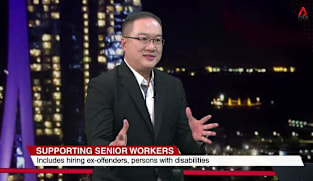Alvin Tan on bankruptcy levels
While bankruptcy applications picked up in the first half of 2024, not all of them resulted in bankruptcy orders. So, the number of bankruptcy orders was actually stable compared to the same period in the past few years and remained below pre-pandemic levels. The household debt situation and credit card delinquency rates also stayed stable. Corporate non-performing loans remained low at about two per cent. Slightly over two-fifths of bankruptcy orders were due to business failures. The figures were revealed by Monetary Authority of Singapore (MAS) Board Member Alvin Tan in Parliament on Wednesday (Oct 16), in reply to MPs’ questions. He detailed the options available to borrowers who face debt repayment challenges and those who end up applying for bankruptcy, as well as measures to mitigate the risks of over-indebtedness. On concerns about the “Buy Now Pay Later” sector in Singapore, Mr Tan said it is still relatively small, but companies have been given guidance on establishing a code of conduct and stronger regulations will be considered if necessary.
While bankruptcy applications picked up in the first half of 2024, not all of them resulted in bankruptcy orders. So, the number of bankruptcy orders was actually stable compared to the same period in the past few years and remained below pre-pandemic levels. The household debt situation and credit card delinquency rates also stayed stable. Corporate non-performing loans remained low at about two per cent. Slightly over two-fifths of bankruptcy orders were due to business failures. The figures were revealed by Monetary Authority of Singapore (MAS) Board Member Alvin Tan in Parliament on Wednesday (Oct 16), in reply to MPs’ questions. He detailed the options available to borrowers who face debt repayment challenges and those who end up applying for bankruptcy, as well as measures to mitigate the risks of over-indebtedness. On concerns about the “Buy Now Pay Later” sector in Singapore, Mr Tan said it is still relatively small, but companies have been given guidance on establishing a code of conduct and stronger regulations will be considered if necessary.



















